Share post now

global
The Alliance Sud magazine analyses and comments on Switzerland's foreign and development policies. "global" is published four times a year (in german and french) and can be subscribed to free of charge.
Investment protection
30.09.2025, Trade and investments
Countries wishing to regulate in the public interest must sometimes confront lawsuits from foreign investors protected by agreements from another era. But opposition to this is growing.
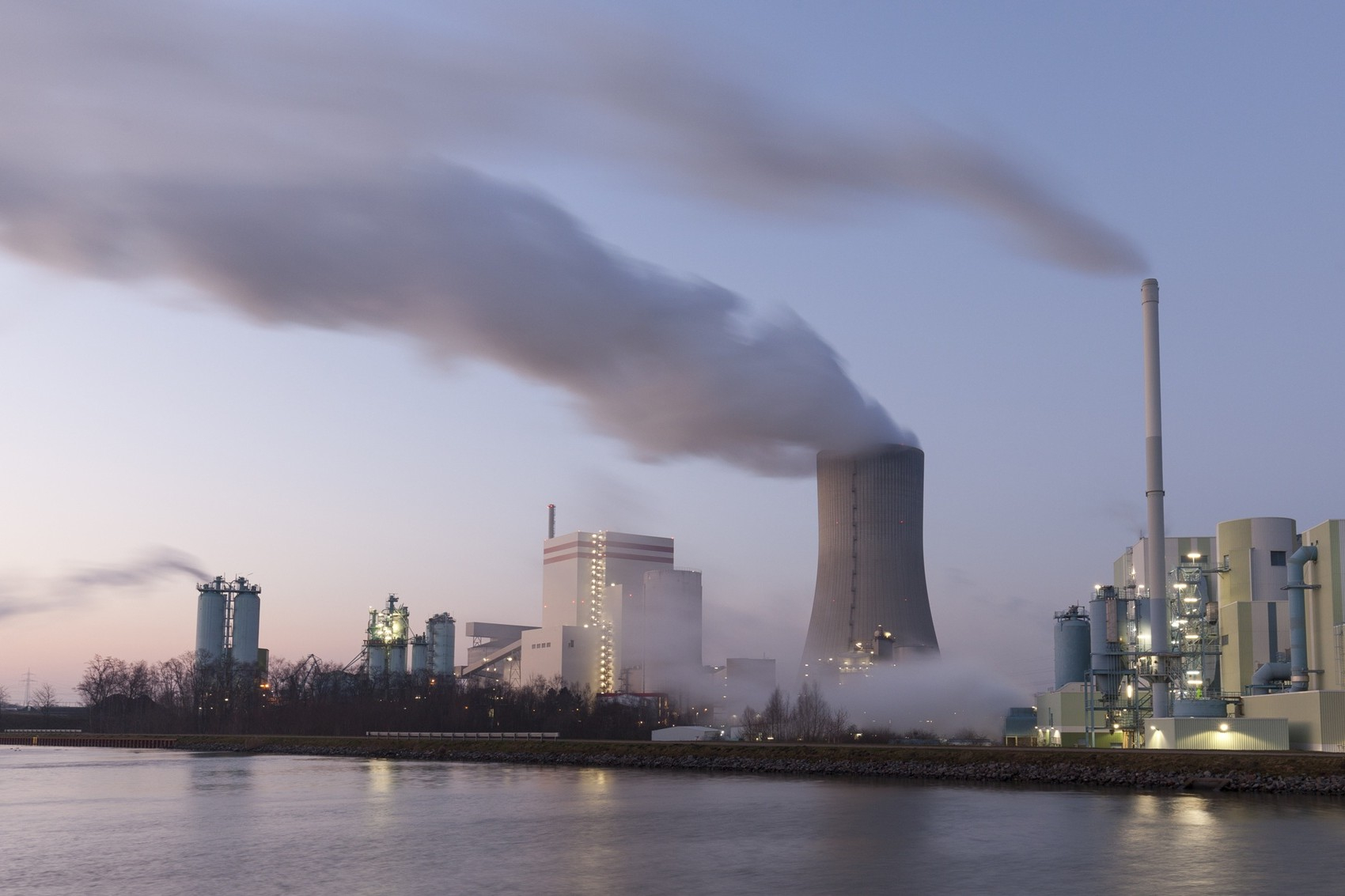
Despite the climate crisis, companies are sueing for their fossil fuel investments: smoke rises from the Trianel coal-fired power station in the Ruhr region. © Keystone / Westend61 / Wilfried Wirth
In presenting the World Investment Report 2025 in mid-June in Geneva, Rebeca Grynspan, Secretary-General of United Nations Trade and Development (UNCTAD) said that many investment protection agreements are very old and therefore do not include provisions on climate change and the environment. Countries often want to do the right thing with respect to sustainability, but they are often taken to court because they go against investment agreements and rules that were established many years ago.
She further stated that UNCTAD is helping countries to renegotiate those agreements so that they can arrive at win-win policies with the private sector, but that there are often contradictions between today’s interests and what was signed 30 years ago. A new form of agreement is needed in order to bring private and public interests together, she said.
The UN leader was referring to claims filed with arbitral tribunals under the Investor-State Dispute Settlement (ISDS) mechanism. They are often cases relating to fossil fuels, such as that of Azienda Elettrica Ticinese (AET), a public company in the Canton of Ticino that challenged Germany over its decision to close the coal-fired power plant in Lunen. It is seeking compensation of 85.5 million euros plus interest. The case is based on the Energy Charter Treaty adopted in the 1990s and which protects foreign investments in fuels, including fossil fuels, and is thus delaying the energy transition.
To date, 52 known cases have been filed by Swiss multinationals against third countries, almost invariably in the Global South. They include four cases brought by Glencore against Colombia relating to the Cerrejón and Prodeco coal mines and also a port. Two have been decided in favour of the investor – which gets 19 million USD and 9 million USD in compensation – and two are still pending.
These lawsuits are based on the Switzerland-Colombia Investment Protection Agreement (IPA) signed in 2006 and currently being updated by both countries, at the request of Colombia. The aim is to negotiate an agreement that is more balanced in favour of the host country – in this case Colombia.
UNCTAD takes note of some interesting developments in IPAs negotiated since 2020. The most relevant, at least from the standpoint of Alliance Sud, is that almost half of them exclude the Investor-State Dispute Settlement (ISDS) mechanism. Cases in point are the Brazil-India IPA and that between the United Arab Emirates and Australia. In many instances this controversial mechanism is replaced by a State-State dispute settlement mechanism and/or by amicable dispute settlement arrangements such as conciliation and mediation.
To avoid arriving at dispute settlements of any kind, the most recent agreements better safeguard right to introduce regulations in the public interest. To that end, they limit drastically or define more precisely the clauses most often invoked before the courts.
These include "fair and equitable treatment” (FET), under which foreign companies can arbitrarily bring claims of discrimination; "indirect expropriation", often invoked when the host country enacts new laws to protect public health or the environment, and which could cause investors to lose money; and the "umbrella clause", under which it is possible to consider altogether unrelated obligations as protected under the treaty.
Those were the main clauses invoked by Philip Morris in its case against Uruguay, when that Latin American country had introduced anti-tobacco legislation in line with the recommendations of the World Health Organisation (WHO), but deemed excessive by the investor. Its arguments were dismissed by the arbitrators, who ruled in favour of Uruguay. That was in 2010, following an intense international campaign – also conducted in Switzerland by Alliance Sud and its South American partners.
Such a case would probably be dismissed more quickly under the new agreements, but is still possible. And this will remain so for as long as investment agreements continue to exist and confer almost exclusively rights, but no obligations on investors.
The fact is that despite being somewhat more balanced, only 10 per cent of the new agreements include any such obligations, for example, to fight corruption, promote transparent governance, protect the environment, trade union rights and local communities, as well as facilitate taxation. Among them, UNCTAD singles out the 2022 agreement between Switzerland and Indonesia.
Another problem is that almost all the agreements concluded since 2020 continue to encompass all investments while failing to impose any requirement for sustainability or positive impacts on the host country and its people.
To conclude, although there have been some improvements over the past 4-5 years, there is still much ground to cover. The latest data available indicates that Switzerland is currently (re)negotiating IPAs with 10 countries, including Colombia, India, Mexico and Vietnam. This is the opportunity to conclude agreements that are more balanced in favour of the host countries and to dispense with the ISDS.
But Switzerland is not taking that path. The IPA with Chile, on which negotiations were just concluded, still contains the ISDS. A foreign investor can therefore file a claim against the host country, but the reverse is not possible, for example, if the company pollutes land and rivers and displaces population groups.
The Energy Charter Treaty (ECT) is a multilateral agreement concluded in the 1990s. It protects investors against State intervention in the energy sector and guarantees them access to private arbitration tribunals. No other treaty has facilitated as many claims brought by investors against States as the ECT.
Just a few years ago, all EU member countries, the European Union and some countries of Eastern Europe, Western and Central Asia and also Japan were members of the treaty. In the wake of an inadequate ECT reform process, some countries decided to withdraw from it, including Germany, France, Poland, Luxembourg, Slovenia, Spain, Portugal, the Netherlands, the United Kingdom and the EU as a whole. Italy had already pulled out. There is a sunset clause allowing for an action to be brought 20 years after withdrawal. This could nonetheless be considerably mitigated by an additional agreement declaring the clause null and void between parties that withdraw.
Unlike its European neighbours, Switzerland has not left the ECT and has no intention of doing so. Investors regularly use Swiss subsidiaries to file arbitration claims under the ECT: altogether nine compensation claims have been lodged from Switzerland, all against EU member countries and the EU itself. These include Nord Stream 2 SA, which is suing the EU before an arbitral tribunal for compensation possibly as much as eight billion euros, over its rules governing natural gas pipelines.
In late 2024, Switzerland approved a modernised version of the ECT, which indeed allows for better regulation in the public interest and expressly mentions the Paris Climate Agreement, but which is not enough. It is to be submitted to Parliament in the near future and will also be subject to a consultation procedure. Alliance Sud urges Switzerland to reject this new version and leave the ECT.
Share post now

global
The Alliance Sud magazine analyses and comments on Switzerland's foreign and development policies. "global" is published four times a year (in german and french) and can be subscribed to free of charge.
Free Trade Agreement with Thailand
21.03.2025, Trade and investments
The Free Trade Agreement with Thailand does not provide for the strengthening of intellectual property rights over medicines (for now) and seeds, which is a good thing from a development standpoint. But the sustainable impact assessment, the first of its kind, misses the mark.
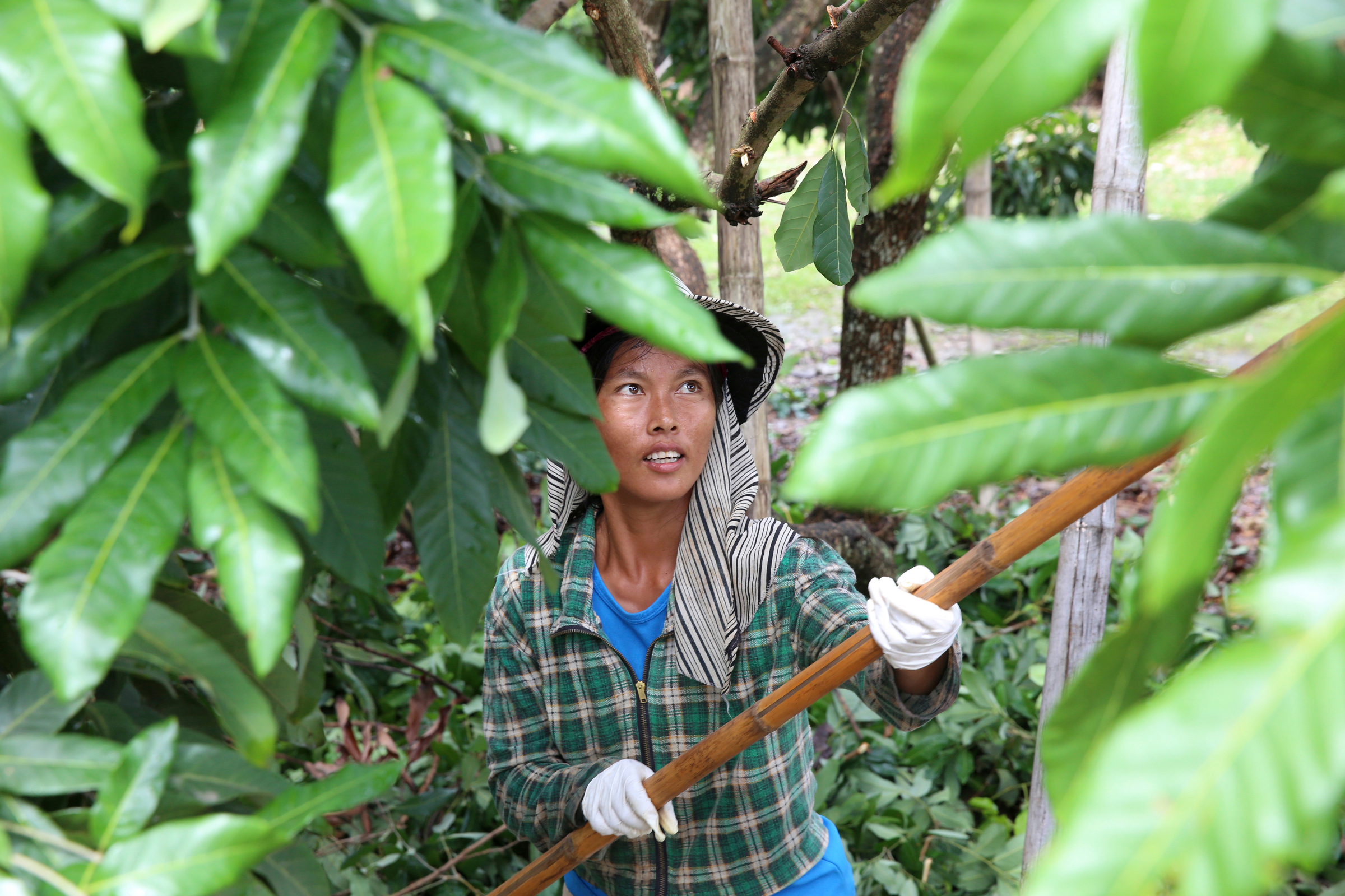
Harvesting in Chiang Mai in northern Thailand, which is suffering from severe environmental damage. There have been repeated protests against free trade agreements here. © Philippe Lissac/Godong/Panos Pictures
The Free Trade Agreement between the countries of the European Free Trade Association (EFTA), which includes Switzerland, and Thailand was signed with great fanfare on 23 January on the sidelines of the World Economic Forum (WEF) in Davos. The text of this agreement has at last been revealed, the negotiations having been launched 20 years ago, then suspended until 2022. It shows that the talks have been more arduous than anticipated by EFTA, which came away virtually empty-handed as regards strengthening intellectual property rights – Switzerland's favourite topic. For now, at least.
As pertains to medicines first of all, Thailand successfully opposed more stringent provisions (called TRIPS+ in the jargon, as they surpass the requirements of the WTO TRIPS Agreement). They would have made the manufacture and marketing of generic medicines more protracted and onerous. It was out of the question for Bangkok to jeopardise its pharmaceutical industry, of which generics make up the lion's share. That industry is making a growing contribution to the national economy and is expected to register sales of USD 2.5 billion in 2029. Currently, it is mainly oriented towards the local market, and is therefore helping to secure citizens' right to health. Switzerland has not said its last word, however, as it has managed to secure a fresh discussion of the details regarding the authorisation of generics in a year's time (data exclusivity).
Thailand has also effectively resisted the usual request from EFTA, at the urging of Switzerland, for the text to include the obligation to accede to UPOV 91. This Agreement "privatises" seeds and new varieties of plants, making it difficult if not impossible for small farmers to use and exchange them freely – as they have always done. Instead, they are being forced to buy them from private seed suppliers such as the Sino-Swiss Syngenta corporation.
Thailand's 25 million small farmers are highly mobilised against free trade agreements. They have so far been successful: in 2006, 10,000 farmers defied the police and massed in front of the venue of the negotiations then in progress on a free trade agreement with the United States (which was also demanding UPOV accession), causing them to fail. Activists again rallied in 2013 in Chang Mai to protest against the negotiations with the European Union (EU). They too were frozen, but have resumed and are now expected to be concluded by the end of 2025.
So far, neither the United States nor the EU, Switzerland's traditional competitors, has signed an FTA with Thailand. EFTA has stood in their way. It is therefore particularly gratifying that UPOV 91 is absent from this agreement, as it would have forced Bangkok to amend its legislation to favour multinationals from all countries. Instead, the legislation that should remain applicable is the Plant Variety Protection Act, promulgated in 1999 for the very purpose of avoiding the UPOV and allowing Thailand's small farmers to reuse and exchange their seeds, albeit under certain conditions.
We also welcome the fact that the free trade agreement provides for protecting genetic resources and the traditional knowledge of indigenous people and small farmers.
The chapter on sustainable development is detailed and envisages creating a panel of experts in the event of a conflict. While this new departure is to be welcomed, Alliance Sud still regrets that disputes under this chapter are not subject to arbitration, like most of the other chapters of the agreement.
Shortly before the negotiations ended, the State Secretariat for Economic Affairs commissioned an ex ante sustainability impact assessment – SIA, as had been called for in a postulate submitted by the National Council Control Committee.
For years, Alliance Sud and Public Eye had been calling insistently on Switzerland to undertake such impact studies, and therefore welcome the fact that such an assessment has finally been conducted. Regrettably however, it came much too late for its findings to be factored into the negotiations, and one may legitimately wonder what purpose it serves.
Moreover, the study does not clearly identify the winners and losers of the agreement, nor the risks that it poses to environmental protection. It missed the opportunity to put forward measures to mitigate these risks. Switzerland had nevertheless done this in its free trade agreement with Indonesia, which envisages the creation of a special mechanism to "compensate" for sustainably produced palm oil through reduced customs duties. Furthermore, the study fails to indicate the measures to be taken when a sector is identified as being at risk – such as deforestation for the purpose of poultry farming.
Broadly speaking, we would like to know what sectors are most at risk, what SECO/EFTA intend to do to mitigate them and what specific measures they plan to take. The ball is now in the Parliament's court. That body must now seek clarifications and demand that these methodological biases be resolved if other free trade agreements are negotiated in the future.
Alliance Sud urges Switzerland to withdraw the study from circulation until it has been peer-reviewed and meets the applicable scientific criteria, this not being the case at present.
Share post now

global
The Alliance Sud magazine analyses and comments on Switzerland's foreign and development policies. "global" is published four times a year (in german and french) and can be subscribed to free of charge.
Trade and climate
03.12.2024, Climate justice, Trade and investments
Imports of the most polluting products are to be taxed under the European Union's Carbon Border Adjustment Mechanism (CBAM). No exemption is being contemplated for the poorest countries, even though they will be severely affected. Should Switzerland ever adopt this measure, it would have to make sure to put this right.
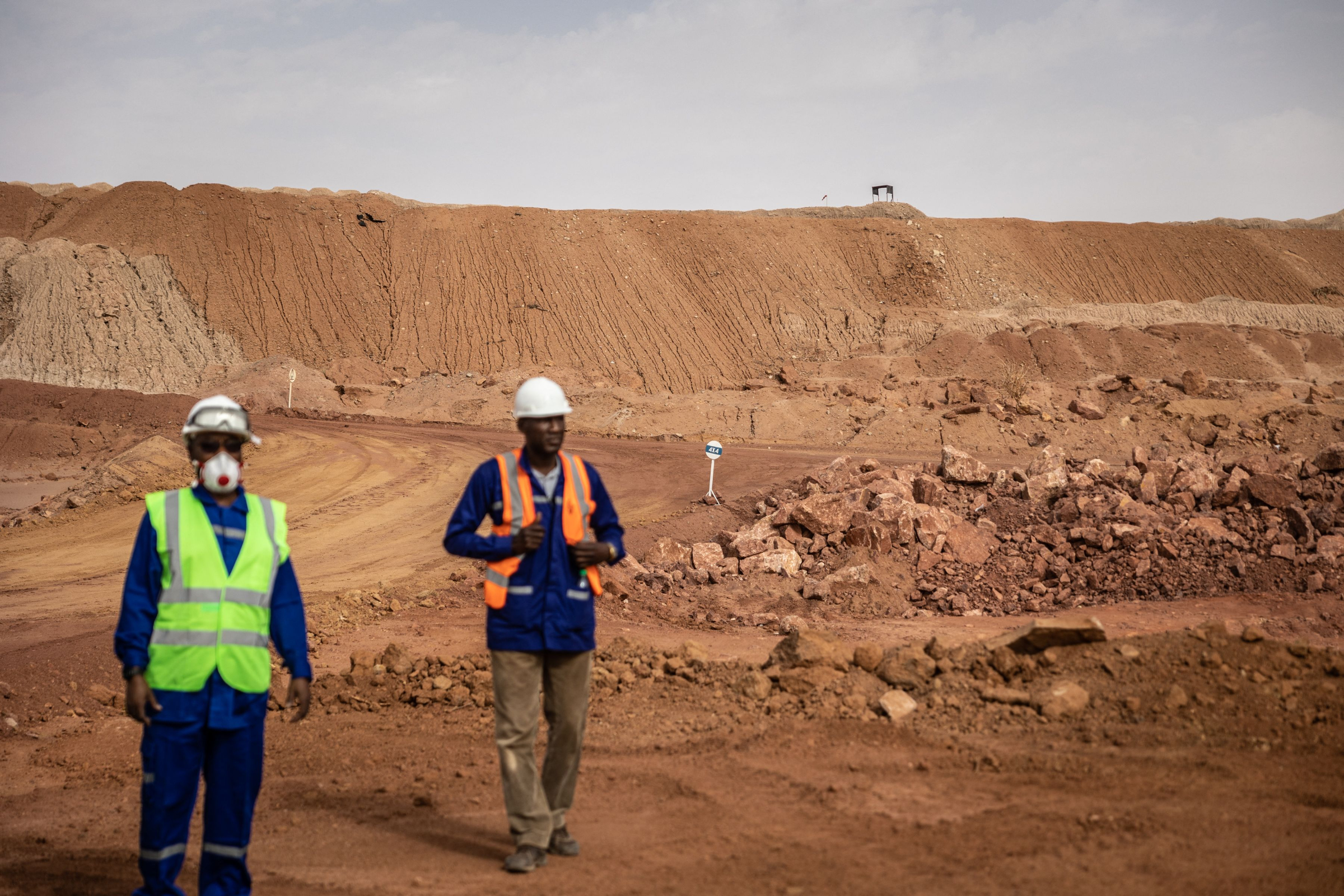
One of the world's largest uranium ore mines closed in Akokan, Niger. However, more are planned in the crisis-ridden north and are economically significant. © Keystone / AFP / Olympia de Maismont
The European Union (EU) takes its climate commitments seriously. In 2019, it launched the European Green Deal, designed to cut CO2 emissions by 55% by 2030 and achieve carbon neutrality by 2050. The programme encompasses a number of internal and external policy measures, including the European Union Deforestation Regulation (EUDR, see global #92). Another key European trade policy project is the CBAM, or Carbon Border Adjustment Mechanism. Its purpose is to make importing industries subject to the same rules as polluting European enterprises. The latter must observe a cap on emissions, which, by the way, they can trade on the "carbon market" in order to comply with the limits set. These measures are designed to render investment in clean energy in Europe cheaper and more attractive. "The CBAM will encourage global industry to adopt greener technologies," European Commissioner for Economic Affairs Paolo Gentiloni has said.
Brussels adopted the CBAM in order to prevent production from moving to countries where the price of carbon is lower than in the EU, or even zero (known as "carbon leakages"), or to shield European producers from unfair competition. Under this mechanism, imports of particularly polluting products will be taxed at the border, starting with iron and steel, cement, fertilisers, aluminium, hydrogen and electricity. It took effect in the EU on 1 October 2023 and is being implemented in successive phases; the mechanism will be fully deployed as of 2026. Starting in 2031, it is expected to cover all imports.
The fundamental question is whether the measure is effective. The EU is optimistic. It estimates that its emissions will decline by 13.8% by 2030, while those of the rest of the world will be down by 0.3% compared with 1990. But the approach elicits sharp criticism from the countries of the Global South, which assert that it is negatively impacting their development. Others criticise it for failing to provide a general waiver, at least for the poorest countries. Moreover, UN Trade and Development (UNCTAD) has calculated that the impact on climate is expected to be minimal: the CBAM will reduce global CO2 emissions by a mere 0.1%, while EU emissions will diminish by 0.9%. It is nonetheless expected to boost the revenue accruing to developed countries by USD 2.5 billion while reducing the revenue going to developing countries by USD 5.9 billion.
In 2022, ministers from Brazil, South Africa, India and China called for discriminatory measures such as carbon taxes at borders to be avoided. The countries most affected by this mechanism are the emerging countries that are the leading exporters of steel and aluminium to Europe, namely, Russia, Turkey, China, India, South Africa and the United Arab Emirates. But Least Developed Countries (LDCs, a category created by the United Nations) such as Mozambique (aluminium) and Niger (uranium ore) will also be impacted. The welfare losses to developing countries like Ukraine, Egypt, Mozambique and Turkey are put at EUR 1–5 billion, a substantial amount considering their gross domestic product (GDP).
Let us take Africa, which is home to 33 of the 46 LDCs. A recent study by the London School of Economics concludes that if the CBAM were applied to all imports, Africa's GDP would contract by 1.12% or EUR 25 billion. Aluminium exports would decline by 13.9%, iron and steel by 8.2%, fertilisers by 3.9%, and cement by 3.1%. So, should the baby be thrown out with the bathwater and the CBAM declared to be anti-development? Probably not. The Belgian NGO 11.11.11. proposes that the least developed countries be exempted from this mechanism, at least initially, under WTO rules; or that they be taxed less than the others. When the CBAM was being discussed in Brussels, this possibility was considered then jettisoned by the Parliament, as the EU opted to secure more revenue. UN Trade and Development suggests returning the revenue from the mechanism to the LDCs to fund their climate transition. The EU is expected to garner revenue of EUR 2.1 billion, which could be channelled multilaterally via the Green Climate Fund, itself currently underfunded.
For now, there is nothing of the kind in Switzerland. Goods originating in Switzerland and exported to the EU are currently exempt from the CBAM by virtue of the Emissions Trading System (ETS), and the Federal Council has opted not to introduce any such mechanism for products being imported into Switzerland. The ETS represents the maximum amount of emissions available to industries in a particular economic sector. Each participant is allocated a certain quantity of emission rights. If their emissions remain below this limit, they may sell their rights. If they exceed the limit, they may purchase rights.
A parliamentary initiative was submitted to the National Council in March 2021 calling on Switzerland to amend the CO2 Act to include a border carbon adjustment mechanism, taking account of developments in the EU. Currently, that parliamentary initiative is still being discussed in the committees. The CBAM could be an effective trade measure for reducing imported CO2 emissions. But should Switzerland ever adopt it, it would have to make sure not to penalise the poorest countries, instead granting them exemptions, and returning a substantial part of the accrued revenue to assist them in making the energy transition.
International trade accounts for 27% of emissions
Greenhouse gas emissions generated by the production and transport of exported and imported goods and services account for 27% of global greenhouse gas emissions. According to the OECD, these emissions come from seven economic sectors, namely, mining and energy production, textiles and leather, non-metallic chemicals and mining products, base metals, electronic and electrical products, machinery, vehicles and semiconductors.
Action is undoubtedly needed on both the trade and production fronts – on the production front, for example, by promoting green technologies, technology transfer and climate finance. On the trade side, through other measures such as the CBAM, though without penalising poor countries. The latter must be assisted in managing their ecological transition and adapting to the new standards.
Share post now

global
The Alliance Sud magazine analyses and comments on Switzerland's foreign and development policies. "global" is published four times a year (in german and french) and can be subscribed to free of charge.
EU deforestation regulation
21.06.2024, Trade and investments
A new regulation prohibits the import into the EU of the seven products most linked to deforestation. There must be no harm to small producers in the South.
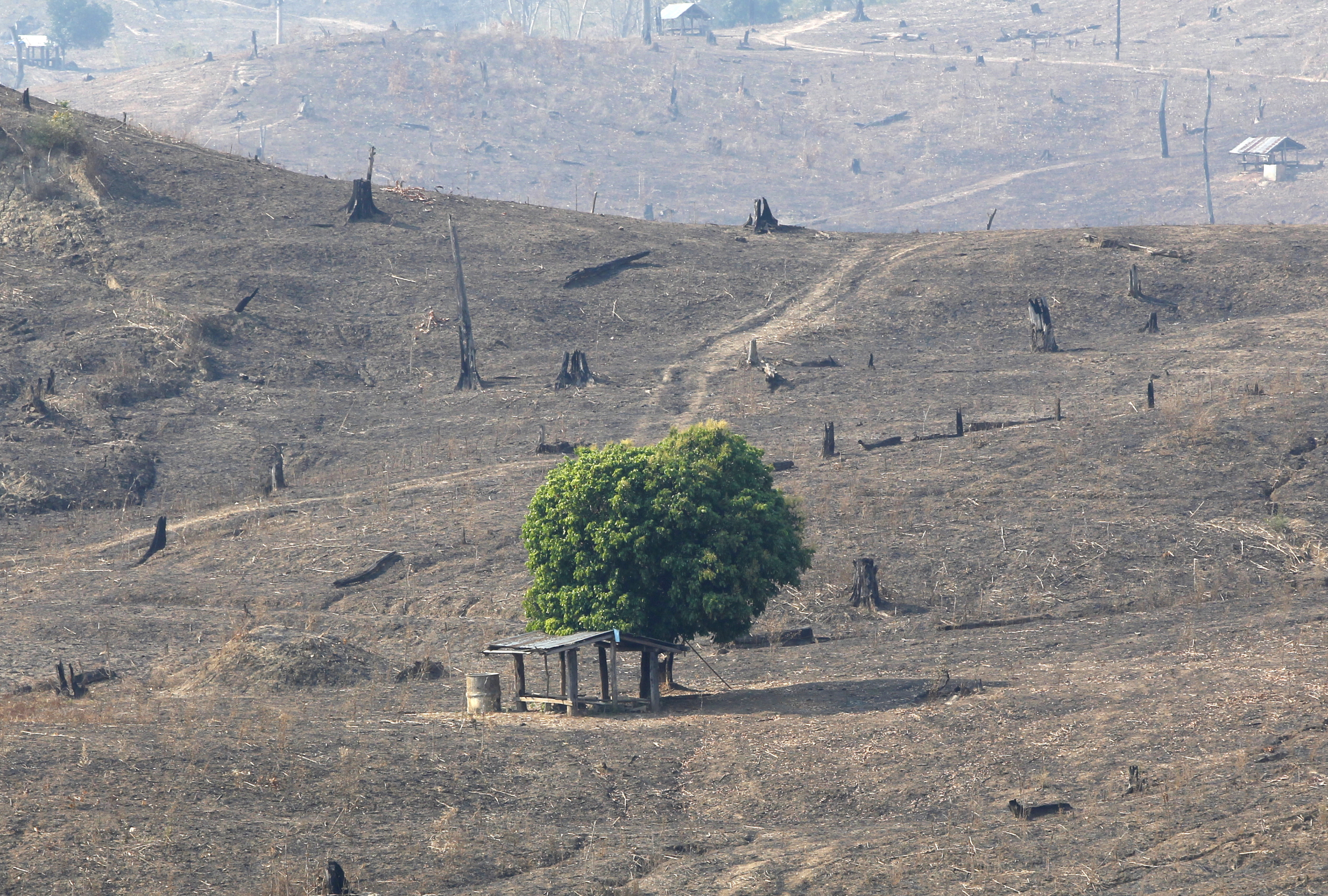
A single green tree in the burnt and deforested landscape near Mae Chaem, northern Thailand.
© Keystone / EPA / Barbara Walton
The new European Union Deforestation Regulation (EUDR) will take full effect on 1 January 2025. Imports into the European Union (EU) of the seven commodities that contribute most to the death of forests – cocoa, coffee, palm oil, rubber, soya, wood, cattle – and their derived products such as chocolate, coffee capsules, furniture, paper, tyres, for example, will only be allowed if it is demonstrated that they originate from land that was not deforested after 1 January 2020. They must also respect labour rights, anti-corruption standards and the rights of indigenous peoples, among other things.
For those purposes, producing countries will be divided into three categories based on the risk of deforestation, and production sites will be monitored by sophisticated technology, including geo-tracking. The initiative forms part of the EU Green Deal, which is based on an incontrovertible finding: after China, the Twenty-seven are the main importers of products that contribute to the deforestation linked to international trade. Due diligence, i. e., ensuring the absence of deforestation, must be carried out by all players in the supply chain – producers, exporters and importers large and small, with more or less stringent conditionalities, depending on size.
The NGO Fern (Forests and the European Union Resource Network) takes the view that the regulation could also affect Honduras, Ghana and Cameroon, which are countries especially dependent on exports to the EU.
The countries of the Global South are steadfastly opposed to this initiative, which they view as disguised protectionism and a new green colonialism. In September 2023, 17 Heads of Government of Latin America, Africa and Asia sent a letter to the Presidents of the European Commission, European Parliament and Council of Ministers deploring the "one-size-fits-all" approach of the EUDR and the fact that it ignores the different local conditions.
Smallholders and small-scale producers, in particular, will find it extremely difficult to prove their compliance with the requirements, even though, except for a few products like coffee and cocoa, it is mainly the large producers and exporters who are able to place their products on European markets.
The negative impacts of this initiative were not long in coming. As highlighted by the International Institute for Environment and Development, European importers are already turning away from Ethiopian coffee and instead towards Brazilian coffee, which is much more traceable.
In its Trade and Development Report 2023, UN Trade and Development (formerly UNCTAD) expressed concern over the proliferation of unilateral initiatives like the EUDR and the Carbon Border Adjustment Mechanism (CBAM) – the carbon tax at the border also imposed by the EU on highly polluting products such as aluminium. They are seen as violating the principle of common but differentiated responsibilities enshrined in the Paris Climate Agreement.
Krungsri Research View looked specifically at the case of Thailand, which demonstrates the ambivalent nature of the impact of the EUDR. The products covered by the EUDR represent a mere 8.3 per cent of exports to the EU and 0.7 per cent of all Thai exports, but their value is rising.
Producers and exporters of rubber, wood and palm oil will have to bear substantial costs in adapting to the new regulation; small producers will lose their competitiveness and Thailand risks finding itself excluded from world supply chains.
But if the process is adequately supported, both by the government and through the aid available under the EUDR, Thailand could gain a competitive advantage over its competitors while conserving its forests.
And what about Switzerland? The country is being indirectly affected by the new provision, as all exports of the seven products to the EU must meet EUDR requirements. Krungsri also states that our country even ranks 17th in terms of impact, with regard to cocoa and especially coffee.
So far, the Swiss government has decided not to adapt Swiss law to the EUDR for as long as mutual recognition with the EU is not possible. This is meant to avoid doubling the administrative burden on Swiss companies. But it plans to conduct an impact study by the summer and to take a decision thereafter.
Civil society is examining the matter. Alliance Sud participates in a working group that is studying whether and how to adapt the EUDR to Switzerland. The concern is to avoid penalising small producers in countries of the Global South. Where necessary, support and training measures should be put in place, and local communities consulted. This would ensure that the fight against climate change does not prejudice the potential for further developing international trade.
Share post now

global
The Alliance Sud magazine analyses and comments on Switzerland's foreign and development policies. "global" is published four times a year (in german and french) and can be subscribed to free of charge.
Economic history
25.03.2024, Trade and investments
Eighty years ago, 43 countries met in the US resort town of Bretton Woods and laid the groundwork for the International Monetary Fund and the World Bank. The entire post-war order is often exaggeratedly ascribed to that conference. A recently published book puts things in perspective.
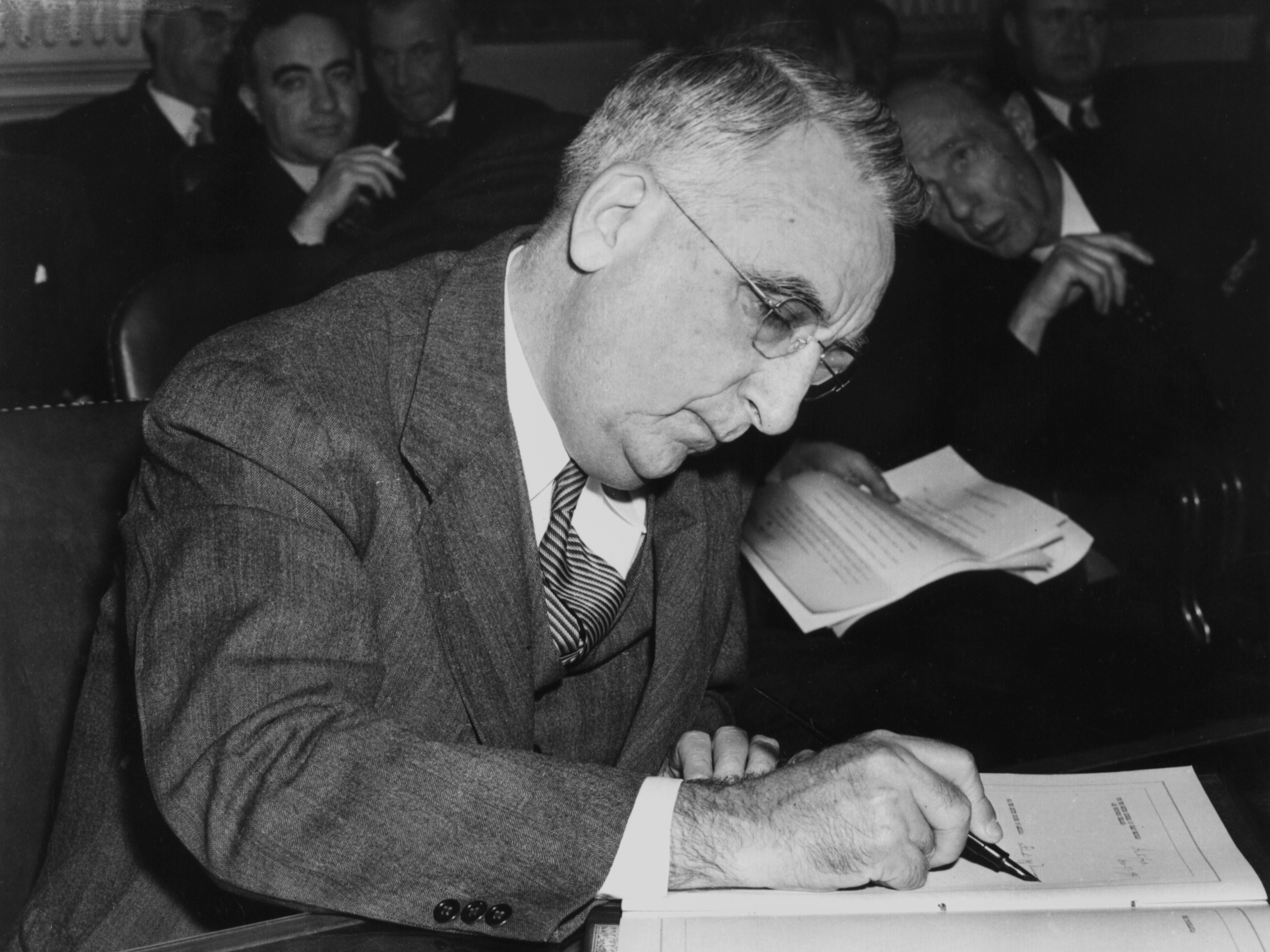
Fred M. Vinson, US Secretary of the Treasury, signs the Bretton Woods agreements in Washington, USA,
on 27 December 1947. © KEYSTONE / DPA DC /STR
Whenever the global economy shows signs of strains and stresses, the call for a "kind of Bretton Woods akin to what followed the Second World War" is never far away, said Klaus Schwab in the wake of the coronavirus crisis. A recently published book by economic historian Martin Daunton titled "The Economic Government of the World, 1933-2033", helps put the import of the Bretton Woods Conference in perspective.
The author shows that what 1944 represented was not the design of a coherent structure that merely needed to be implemented after the war so as to kick-start the post-war economic miracle. What instead occurred at the time was merely the launch of a quest. The post-war order was also shaped by altogether different forces, such as the Cold War (at Bretton Woods, the Soviet Union was still being envisaged as a fully-fledged partner), the related Marshall Plan, and the restoration of Germany's economic position in Europe, itself no less related. The system of currencies flexibly pegged to the dollar, itself in turn convertible to gold at a fixed exchange rate, functioned as envisaged at Bretton Woods only from 1958 to 1968.
There was a faction within the US Administration under Franklin D. Roosevelt, the Democrat President from 1933 to 1945, that also thought of the New Deal in international terms. Already in the early 1940s, it drew up plans for a public Inter-American Development Bank meant to undercut the power of Wall Street bankers and favour long-term public development funding rather than private investment. In 1940, the officer with competence for Latin America at the US State Department said that this would usher in a system where finance would serve trade and development (...) in direct contrast to the earlier system, which was based on the notion that development and trade should serve finance. Resistance from Wall Street and in Congress did temporarily scuttle these plans, but the matter had become a topic in its own right, thanks to the discussion around an "International Bank for Reconstruction and Development" (IBRD, still the official name of the World Bank today) in Bretton Woods.
The Bretton Woods Conference was dominated by the USA and Great Britain, and substantial elements of it had been negotiated beforehand. But countries of the Global South were also represented – provided they were already independent (such as in Latin America) or semi-autonomous (such as India). Still completely dependent on commodity exports at the time, Australia, too, shared the same concerns. The conference on the monetary and financial order was not, however, the only forum in which to address their priorities. Already in 1943, a conference had been held on food and agriculture, followed by one on labour a year later, where Australia attempted in vain to establish full employment as pillar of the post-war order on a par with the monetary and trade aspects.
"The Economic Government of the World, 1933-1923" (published by Farrar, Straus and Giroux, November 2023, 986 pages) takes you behind the scenes of the institutions that have shaped the global economy over the last ninety years.
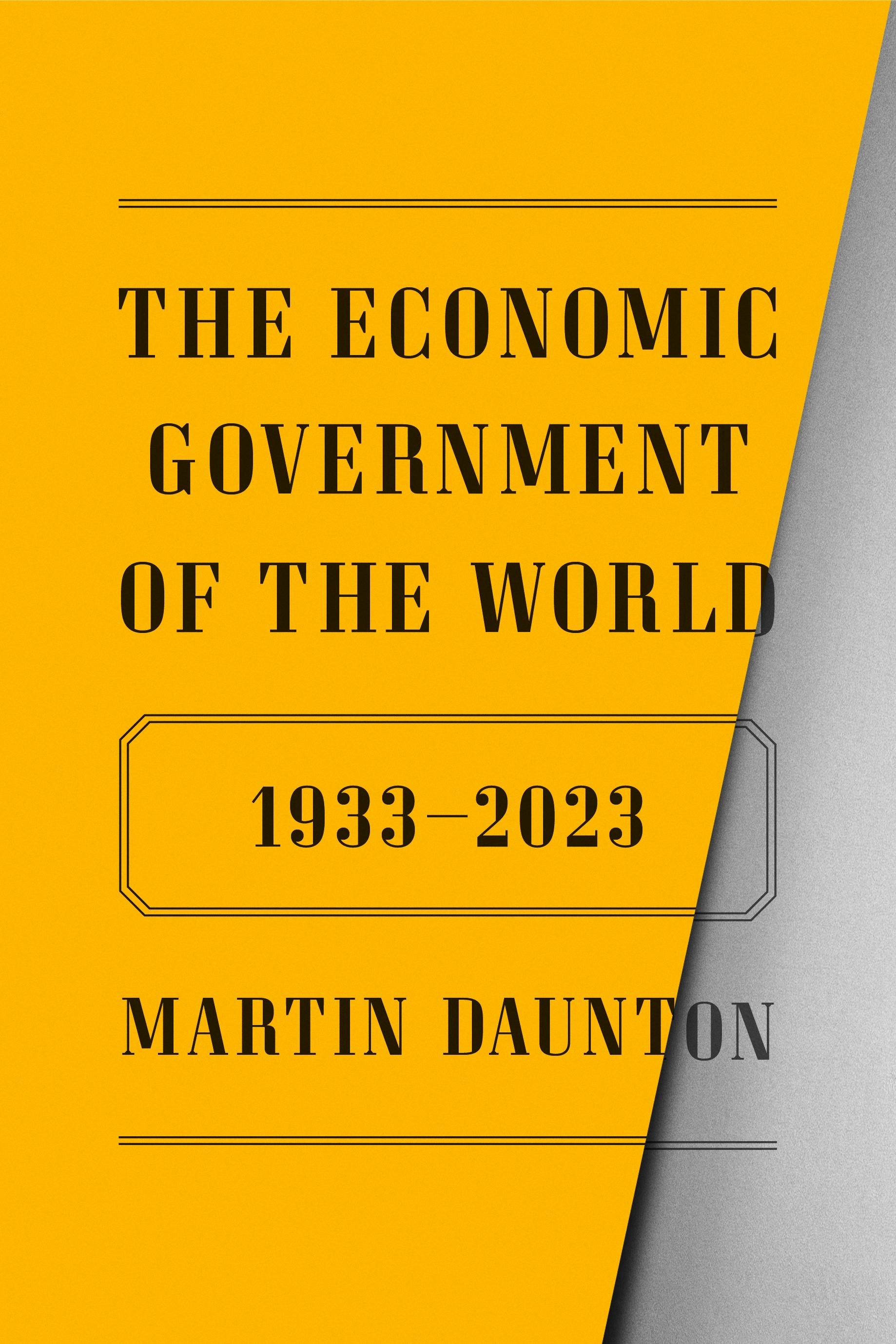
The USA and the UK had already agreed on the core elements of the International Monetary Fund, whereby members could peg their currencies to the dollar, which in turn would be convertible to gold at a fixed rate. The underlying idea was to combine stability and flexibility in the monetary system so as to enable countries with trade deficits to devalue their currencies in a controlled manner, thereby avoiding austerity and unemployment. This went hand-in-hand with capital controls designed to shield countries from destabilising capital flows. The US chief negotiator at Bretton Woods, Harry Dexter White (his British counterpart was the economist John Maynard Keynes, to whose economic philosophy – Keynesianism – the entire post-war order would later be attributed), wrote in an early draft of the monetary order that countries should prevent capital flows that served to help the rich avoid "new taxes or social charges".
The USA and the UK also proposed a decision-making model that was linked to the monies paid into the fund, based on the principle of "one dollar, one vote". This conferred disproportionate influence on the UK and veto power on the USA. China and India, backed by Australia, the Latin American countries and France, protested in vain against this. To this day, the quota issue – now rendered all the more urgent by the altered balance of economic power across the global economy – remains unresolved.
There were 19 Latin American delegations at Bretton Woods. Their spokespersons underlined the specific trade balance-related problems affecting countries that were dependent on commodity exports. Their primary concern was not with currency matters but instead with the sharply fluctuating prices of mineral and agricultural raw materials. These countries therefore tried to add development issues to the mandate of the International Monetary Fund (IMF): they called for commodity agreements to stabilise prices and for leeway to promote and protect their own industries so as to reduce their dependence on imports. Their efforts were largely unsuccessful, and while the "Articles of Agreement" of the IMF do contain a commitment to development, implementation is left up to the IBRD, that is to say, the World Bank.
The invitation to the Bretton Woods Conference clearly prioritised the monetary fund – for which "definite proposals" were to be formulated – over a bank for reconstruction. For the delegations from the Global South, however, key aspects of the discussion on the IBRD were of great relevance. One centred on whether the bank should primarily guarantee private investments or grant loans independently. The UK and the representatives of Wall Street wanted a bank that would primarily coordinate and secure private transactions. That was not surprising, as the UK was still the leading financial centre – 70 per cent of global financial transactions were taking place in sterling even after the war – before Wall Street overtook the City of London. A second question revolved around the matter of "reconstruction" versus "development" in the Bank's mandate. Lastly, there was the related matter of whether the Bank would be able to grant loans that yielded no direct economic return, such as for structural sewerage or health programmes that boost a country's long-term productivity, or strictly for specific projects that are also of commercial interest – a power plant for example. Anyone following the current discussions regarding the World Bank would be hard put not to utter a "sounds familiar" – even 80 years on.
The upshot was a compromise that placed reconstruction and development of IBRD members on an equal footing. There was not much flexibility on the other issues, however. Just 20 per cent of the capital could be granted directly as loans (the remainder was earmarked for securing private investments) and indeed – barring (unspecified) exceptional cases – only for specific projects with a "productive purpose".
While the discussion and decision-making revolved only around the Monetary Fund and the World Bank in 1944, thought had nonetheless been given from the onset to an international trade organisation as the third pillar of the global economic order. Here too, the aim was to prevent conditions like those that prevailed during the interwar period, when countries erected high protective tariff walls and engaged in trade wars (Daunton prefaces his book with a quote from Donald Trump: "Trade wars are easy to win").
After the disillusionment of Bretton Woods, and now reinforced by an independent Indian subcontinent, the countries of the Global South placed their hopes in the negotiations on the International Trade Organisation (ITO). These talks took place in Geneva in 1947 and in Havana in 1948. The non-industrialised "developing countries" made up a majority at the Havana Conference. That meeting was overshadowed by the Marshall Plan, and many countries of the Global South were hoping or expecting to benefit from aid on the same terms. It nevertheless became increasingly apparent to them that this would not be the case (even though the official USA refusal came only after the conference). Spearheaded by the countries of Latin America and by India, the "developing countries" used their majority at the Havana Conference to make the ITO Charter more rigorous by incorporating the demands they had failed to obtain at Bretton Woods: restricting free trade so as to build up their own industries, preferential tariffs and commodity agreements. Furthermore, the ITO was to operate by the principle of "one country, one vote".

Martin Daunton is Emeritus Professor of Economic History at the University of Cambridge. He is currently a visiting professor at Gresham College in London.
This all came to nothing when US President Truman decided, in December 1950, not to submit the agreement to Congress. Most other industrialised countries had made their approval contingent on that of the USA, with the result that the ITO died a quiet death in the early 1950s. What remained was the General Agreement on Tariffs and Trade (GATT), which had already been negotiated in 1947 and provided for gradual tariff reductions. It was only in 1994, with the founding of World Trade Organization (WTO) in an entirely different context and after seven years of negotiation, that the architecture was completed as originally planned.
The post-war economic order was termed "embedded liberalism" by John Ruggie (later to become the UN special representative on human rights and transnational corporations). Martin Daunton asserts that to the countries of the Global South, what was being embedded was "a form of neo-colonialism and a global economy based on the interests of the advanced industrial economies."
Their demands did not simply vanish into thin air, however; they were revived in the United Nations starting in the 1960s. Decolonisation had altered its membership, with 16 African countries joining the UN in 1960 alone. The first United Nations Conference on Trade and Development (UNCTAD) took place in Geneva in 1964. In the 1970s, debates on the "economic government of the world" were dominated by the theme of a new international economic order, which the South had placed on the agenda. After years of negotiations, Ronald Reagan and the Latin American debt crisis of the 1980s put paid to that attempt.
Many of the structural problems raised by the South at Bretton Woods are still unresolved today. Hence the reason why the reference to that Conference still makes sense even after reading Martin Daunton's book, which puts the import of the Conference in perspective. This is especially true with regard to the following aspect of the briefing by UN Secretary-General António Guterres to the General Assembly in 2023: "It is time for a new Bretton Woods moment. A new commitment to place the dramatic needs of developing countries at the centre of every decision and mechanism of the global financial system."
Share post now

global
The Alliance Sud magazine analyses and comments on Switzerland's foreign and development policies. "global" is published four times a year (in german and french) and can be subscribed to free of charge.
Opinion
23.01.2024, Trade and investments
Guy Parmelin, the Swiss Minister of Economic Affairs, announced on Sunday that he had reached an agreement in principle with India on a free trade agreement, negotiations on which had been going on for 16 years. Without giving any further details, he assured that the two parties had also reached agreement on the issue of patent protection, which had been the main stumbling block.
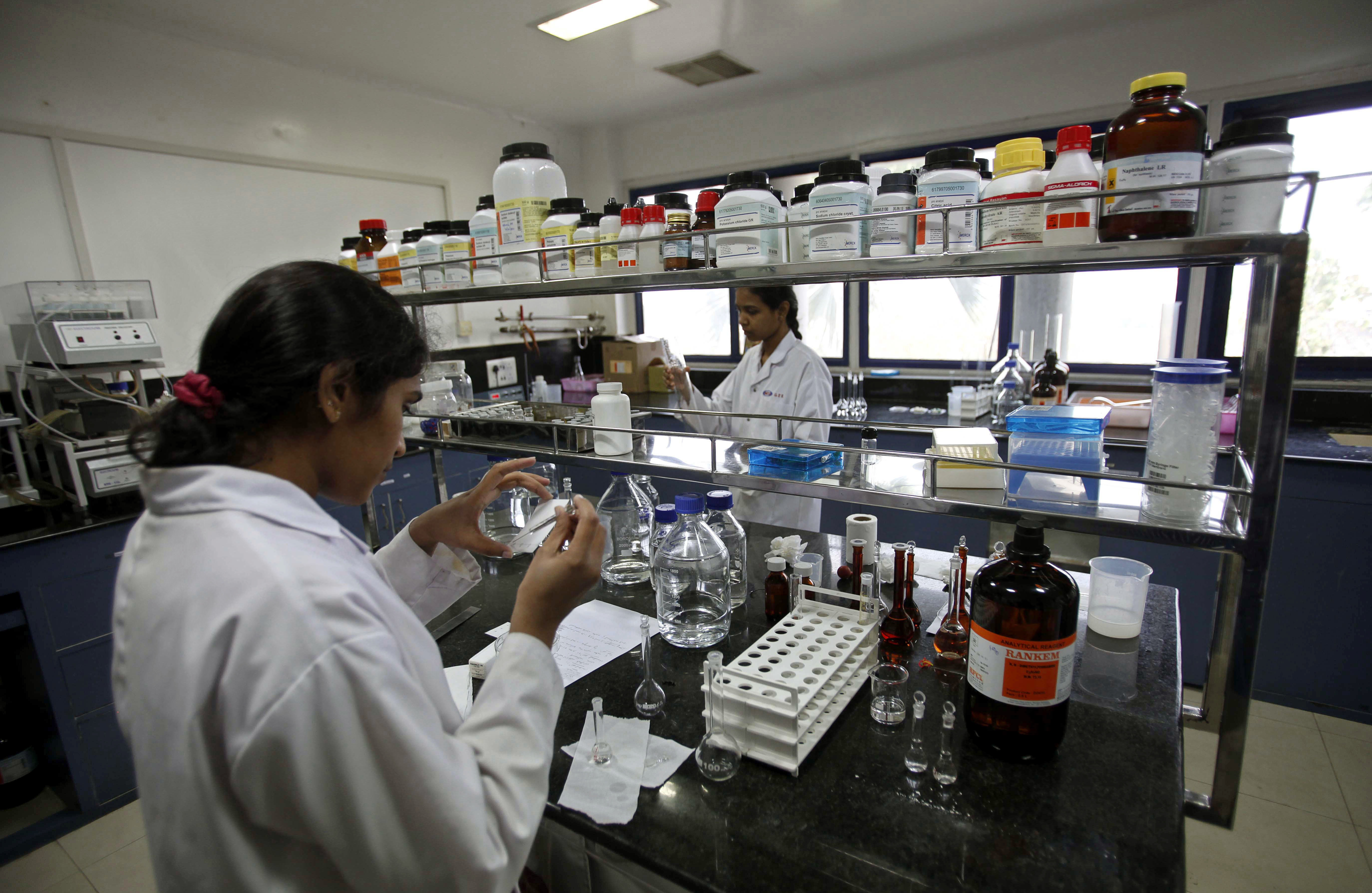
Indian scientists work in a laboratory at the Research and Development Centre in Hyderabad, India.
© Keystone / AP / Mahesh Kumar
We don't know what this agreement contains – the negotiations are secret and have not been completed – but Alliance Sud and like-minded Indian organisations such as Third World Network (TWN) are worried. Until now, the Indian government has always maintained that it did not want intellectual property rights to be strengthened (known in the jargon as TRIPS+) in free trade agreements (FTAs). We understand that Switzerland demanded TRIPS+ provisions as a condition to conclude the free trade agreement and we suspect that there might be inclusion of this kind of provisions in the final text.
From the point of view of the right to health, this would be problematic. India is the world's leading producer of generic medicines, which it exports to developing countries. Under current law, patents last for 20 years from the date of filing, as stipulated in the TRIPS agreement of the World Trade Organisation. The free trade agreement could provide for an extension of the patent term beyond 20 years, which would delay the release of generic medicines.
In addition, the current law does not provide for data exclusivity, which means that a drug can be approved at any time, whether it is a new product, or a product approved anywhere in the world. The FTA could force India to change its law to introduce data exclusivity, which would delay the introduction of generic medicines.
Finally, under the current system, India does not grant patents for a new use of a known molecule (evergreening). The FTA could require India to introduce this obligation.
If the FTA contains these provisions, India will have to amend its Patent Act and reduce the flexibility it provides. This would also set a precedent in the ongoing free trade agreement negotiations with the European Union, the United Kingdom and the United States.
Another problem could be seed protection. Switzerland usually asks developing countries with which it negotiates free trade agreements to sign up to UPOV 91, the convention that "privatises" seeds so as to make it more difficult for farmers to reuse and exchange them. If this provision is also included in the agreement with India, it would jeopardise the right to food of small farmers who cannot afford to buy patented seeds, or who do not want to.
Alliance Sud calls on Switzerland to lift the veil on these negotiations and not to jeopardise the right to health and access to seeds of the Indian population, especially the most vulnerable.
Share post now
Article
09.12.2019, Trade and investments
With the Belt and Road Initiative, China is pushing global development in a manner unparalleled to date. But how sustainable are the “new silk roads”? Switzerland wants a piece of the cake and has signed a memorandum of understanding with China.

Military honours for the Hungarian Prime Minister Viktor Orban at the Belt and Road Forum 2017 in front of the Great Hall of the People in Beijing, China.
© Andy Wong / AP / Keystone
Share post now
Article
22.03.2020, Trade and investments
Cofco Tunhe, the world's second-largest producer of canned tomatoes, operates in Xinjiang, where China oppresses millions of Uyghurs. The Cofco Group has set up its global trading headquarters in Geneva. Switzerland must act.
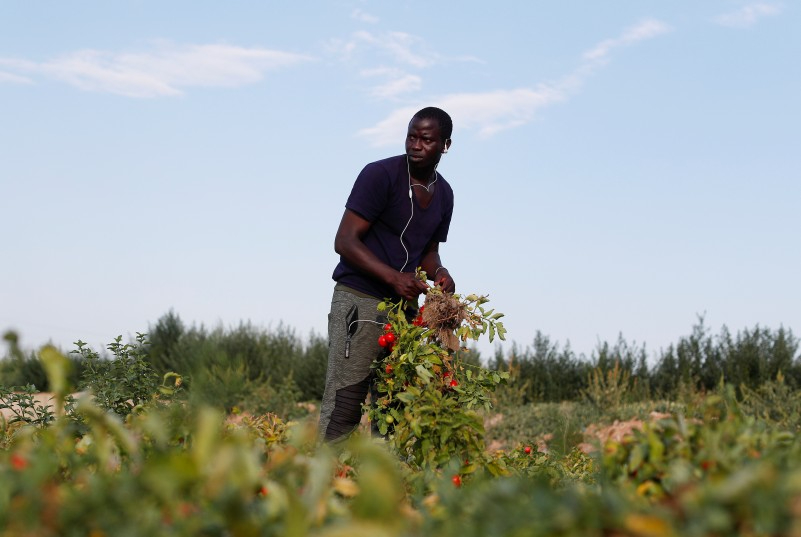
People like Idrissa Diassy (24) from Senegal are victims of globalised tomato production. He works far away from home near Foggia in southern Italy.
© Alessandro Bianchi / Reuters
Share post now
Article
22.06.2020, Trade and investments
The call can no longer be ignored, production offshored to low-wage countries must be brought back. The more pressing a paradigm shift, the more careful the approach must be. Otherwise developing countries could yet again pay the price.
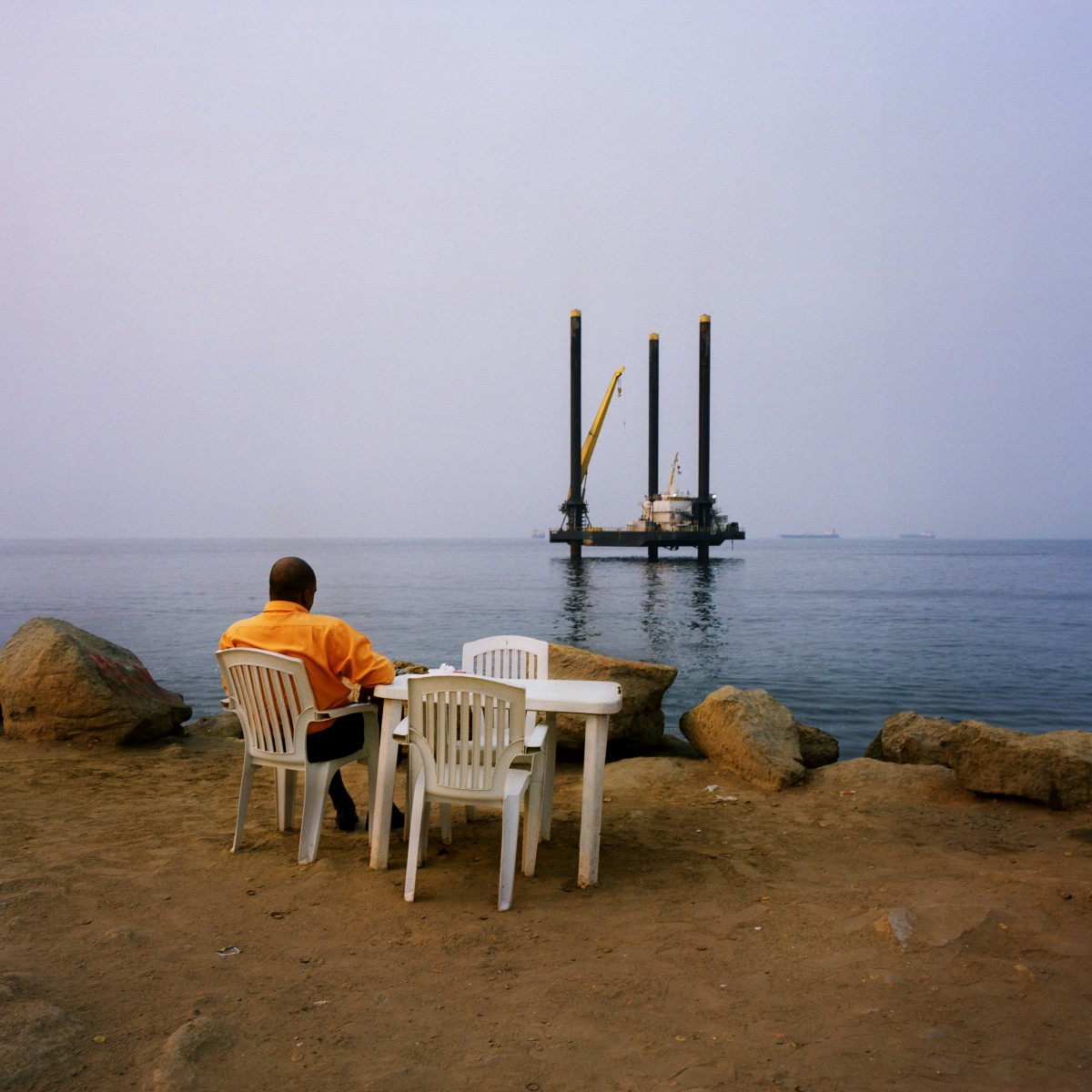
On Ilha de Cabo, an island off the coast of the Angolan capital Luanda.
© Alfredo D’Amato/Panos
Share post now
Press release
09.07.2020, Trade and investments
250 organisations from 60 countries are calling on Switzerland, Norway and Liechtenstein in an open letter to stop imposing strict plant variety protection laws on the countries of the global South; laws with which they themselves do not comply. This demand by the EFTA countries for strict plant variety protection – a kind of patent protection on seeds – drastically restricts the free use of seeds, to the detriment of farmers in the global South. The right to food, food sovereignty and agrobiological diversity are all under threat.
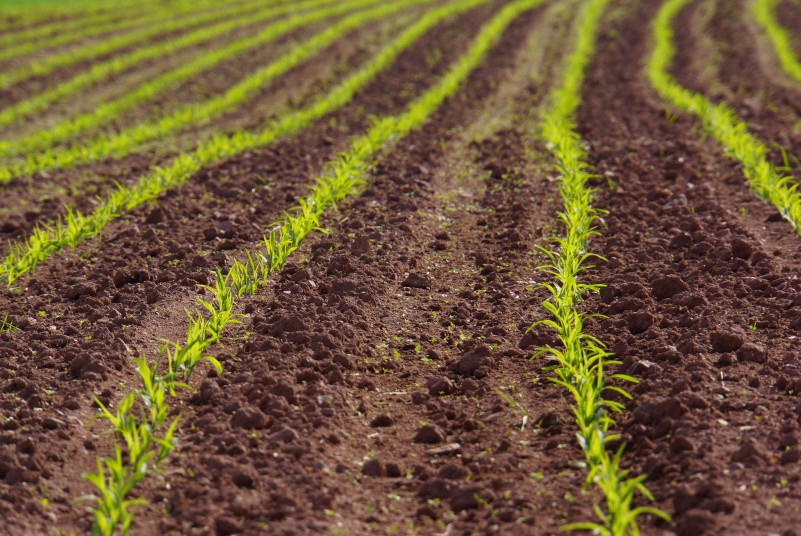
© pixelio.de / Rainer Sturm
Share post now